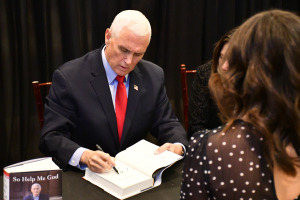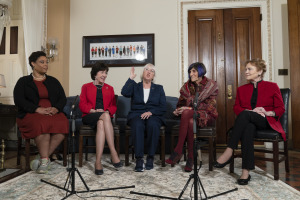
Biden taps Julie Su to lead Labor Department
Su quickly emerged as a clear favorite of organized labor and the Democratic Party establishment in recent weeks after Marty Walsh announced his resignation from the post.

Su quickly emerged as a clear favorite of organized labor and the Democratic Party establishment in recent weeks after Marty Walsh announced his resignation from the post.

Christopher Wray’s statement follows a Department of Energy analysis for a new government-wide intelligence assessment that a lab accident in Wuhan was most likely responsible for the deadly pandemic.

In questioning on Tuesday, Chief Justice John Roberts pointed to the wide impact and expense of the program, which is estimated to cost $400 billion over 30 years.

Congress passed the “No TikTok on Government Devices Act” in December as part of a sweeping government funding package.

It’s the second time in three years that the justices will be examining the federal agency, which was created in the wake of the 2008 financial crisis.

Kratom was legal in Indiana until 2014, when state lawmakers banned the substance in anticipation of similar action at the federal level. But the FDA has failed to outlaw kratom, despite numerous attempts.

President Biden’s far-reaching initiative to forgive student loan debt will be debated this week before a Supreme Court that is skeptical of the administration’s bold claims of power—a nearly half-trillion-dollar showdown that could affect more than 40 million Americans.
President Joe Biden nominated Werfel to steer the Internal Revenue Service as it receives a massive funding boost—nearly $80 billion over the next 10 years through the Inflation Reduction Act, which Congress passed in August.
The Biden administration on Tuesday outlined how states and not-for-profit groups can apply for $27 billion in low-cost financing for projects intended to cut greenhouse gas emissions.
China responded that it reserved the right to “take further actions” and criticized the U.S. for “an obvious overreaction and a serious violation of international practice.”

Senators who want to impose tougher penalties when airlines strand or delay passengers say they finally might be able to turn their ideas into law because of outrage over debacles like the one at Southwest Airlines in December.
Federal watchdogs have been sounding the alarm for years about questionable charges on the private version of the Medicare program, with investigators raising the possibility that insurance companies may be bilking taxpayers of billions of dollars every year.

In his first public comments since the discovery, former Vice President Mike Pence said he hadn’t been aware that the documents were in his Carmel residence but his lack of knowledge wasn’t an excuse.

In his official resignation letter, outgoing White House chief of staff Ron Klain offered a rare glimpse into how his many years of service alongside President Joe Biden has affected him personally.

This year, for the first time in history, the four leaders of the two congressional spending committees are women. So is the president’s OMB director.

The reductions of allotments will be difficult for many, advocates say, especially since food costs were 12 percent higher in November 2022 than a year earlier.

Only weeks after taking control of the chamber, GOP lawmakers under new Speaker Kevin McCarthy, R-Calif., have rallied around firm pledges for austerity.

Challenges with the cash-strapped United States Postal Service sent many Americans to their wit’s end during the COVID-19 pandemic, especially in communities reliant on the mail for essential goods.

The government alleged in the complaint that Google is looking to “neutralize or eliminate” rivals in the online ad marketplace through acquisitions and to force advertisers to use its products by making it difficult to use competitors’ offerings.

The proposed change is designed to reduce the complexity of the vaccine regimen for the public, doctors and manufacturers. It also reflects a view that “chasing variants” with ever-changing booster formulations is ultimately futile.